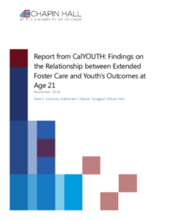Displaying 1311 - 1320 of 2503
This meta-analysis synthesized findings from existing evaluations to examine whether and to what extent Family Treatment Drug Courts (FTDCs) participants achieved better reunification and safety outcomes than non-participants.
The purpose of this paper is to examine the importance of social support for foster parents, in regards to confidence and satisfaction, as well as perceived challenges with fostering.
The present systematic review examines the current literature on the association between out-of-home placement and offending behavior among youth with Child Protection Services maltreatment reports in the US.
This paper reviews research on child maltreatment over a recent 10-year span to identify trends in maltreatment assessment and operationalization.
This paper reviews evidence from some well evaluated US reunification programs to investigate positive impact on post reunification outcomes such as preventing future maltreatment or future re-entry into care.
The aim of this study was to improve the mean time to initial foster care evaluation (TIE) from 32 to <7 days within 12 months for children in FC in Durham County, North Carolina.
The present report builds on prior research by examining outcomes from the third interview wave of the California Youth Transitions to Adulthood Study (CalYOUTH), which took place when study participants were 21 years old or older.
This Comment argues that the Adoption Assistance and Child Welfare Act (CWA) creates an enforceable right to foster care maintenance payments under § 1983 by analyzing the CWA's text and structure and by drawing on the context of the Act's enactment and subsequent legislative history.
Lumos is seeking a Researcher who will be responsible for leading and carrying out a US research agenda.
This paper begins with a historic review of immigration policies in the United States aimed at supporting unaccompanied migrant children.


